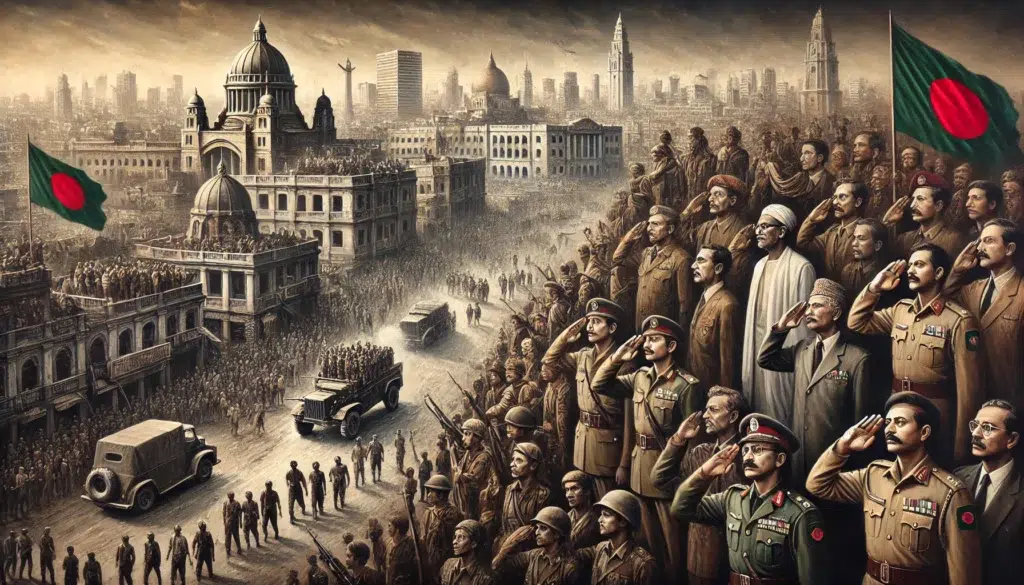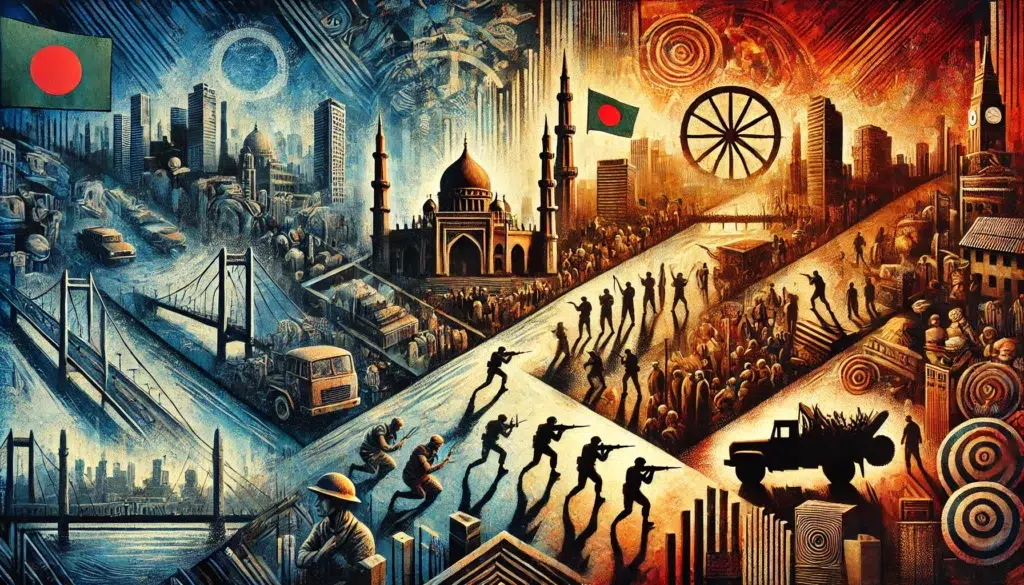Martial Law Speculation in Bangladesh: Current Situation and Historical Context

The political climate in Bangladesh has been marked by heightened tensions and speculation about the potential imposition of martial law. Protests have erupted across the country, driven by public dissatisfaction with the government’s handling of various socio-political issues. There is significant opposition from civil society and political leaders to any move towards military rule, emphasizing the Supreme Court’s ruling that the declaration of martial law is an act of high treason and unconstitutional.
Historical Context
Martial Law in Bangladesh’s Past
Bangladesh has a history of military rule, most notably under Lt Gen Hussain Muhammad Ershad, who took power in 1982. His regime lasted until 1990, and during this period, martial law was declared, which the Supreme Court later deemed unconstitutional. The court’s landmark verdict on the seventh amendment reinforced that any future declaration of martial law would also be illegal.
Recent Developments
Public and Political Reaction
The current unrest stems from a series of government actions perceived as undemocratic. Activists and political figures have made it clear that the imposition of martial law would violate the constitution and undermine democratic governance. They urge the government to address public grievances through lawful and democratic means rather than resorting to military intervention.
Legal Implications
The Supreme Court’s 2010 verdict on the seventh amendment remains a critical reference point in the debate over martial law. The judgment clearly states that any attempt to oust an elected government through martial law is illegal and that those responsible would be guilty of high treason. This legal backdrop significantly constrains any potential move towards military rule.
Conclusion
The speculation about martial law in Bangladesh underscores the ongoing political instability and public discontent. The legal framework established by the Supreme Court provides a strong deterrent against any such move, reinforcing the necessity for democratic processes.




 International
International IPTV
IPTV
 Ai Tools
Ai Tools Content Writing Tools
Content Writing Tools Plagirism Checker Tools
Plagirism Checker Tools




 Windows
Windows Office
Office Anti Virus
Anti Virus

 Facebook
Facebook Instagram
Instagram Tiktok
Tiktok Twitter
Twitter
 Theme
Theme Plugin
Plugin
 Xbox
Xbox Rockstar
Rockstar PUBG
PUBG PUBG UC
PUBG UC Royal Pass
Royal Pass



